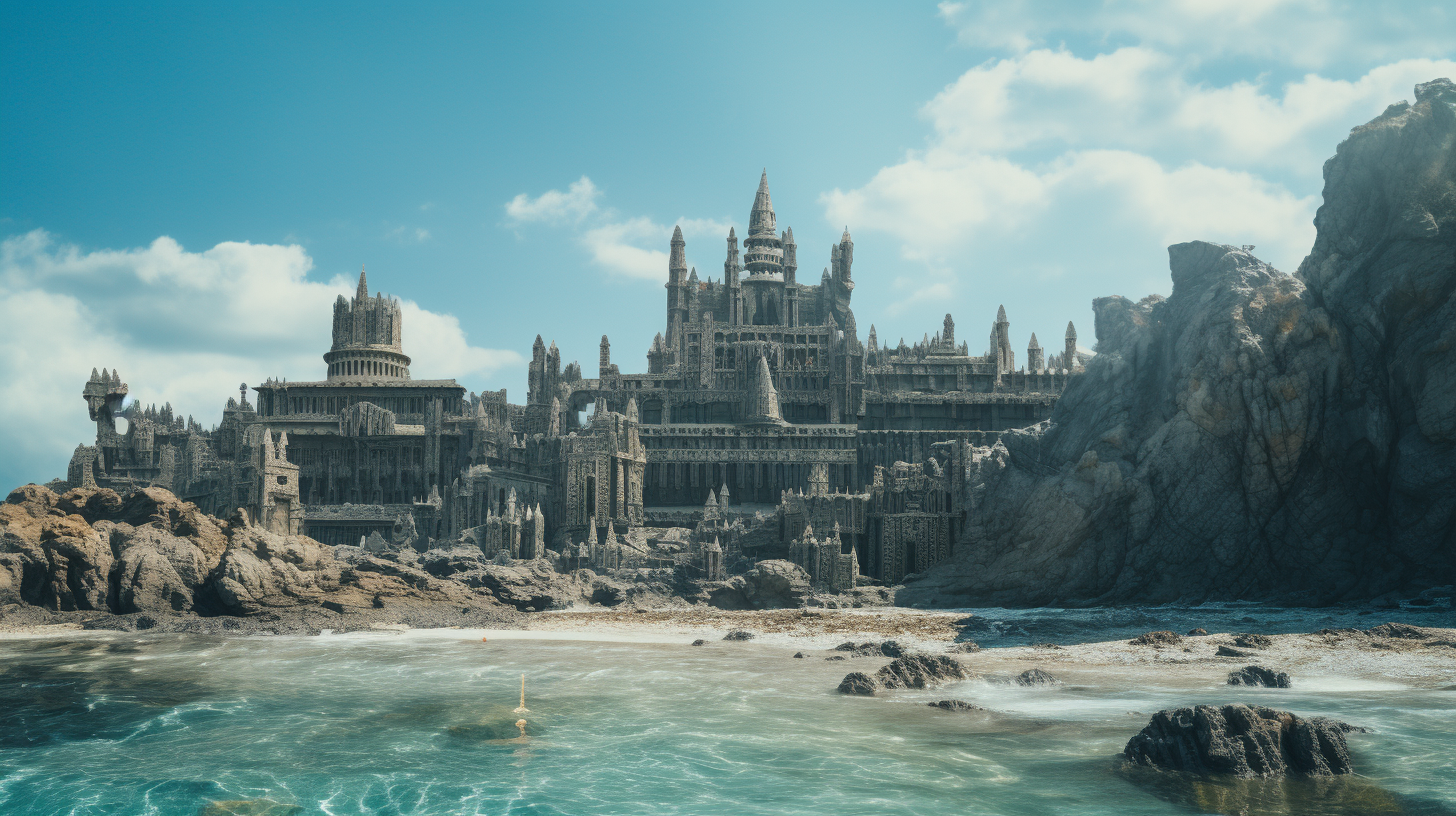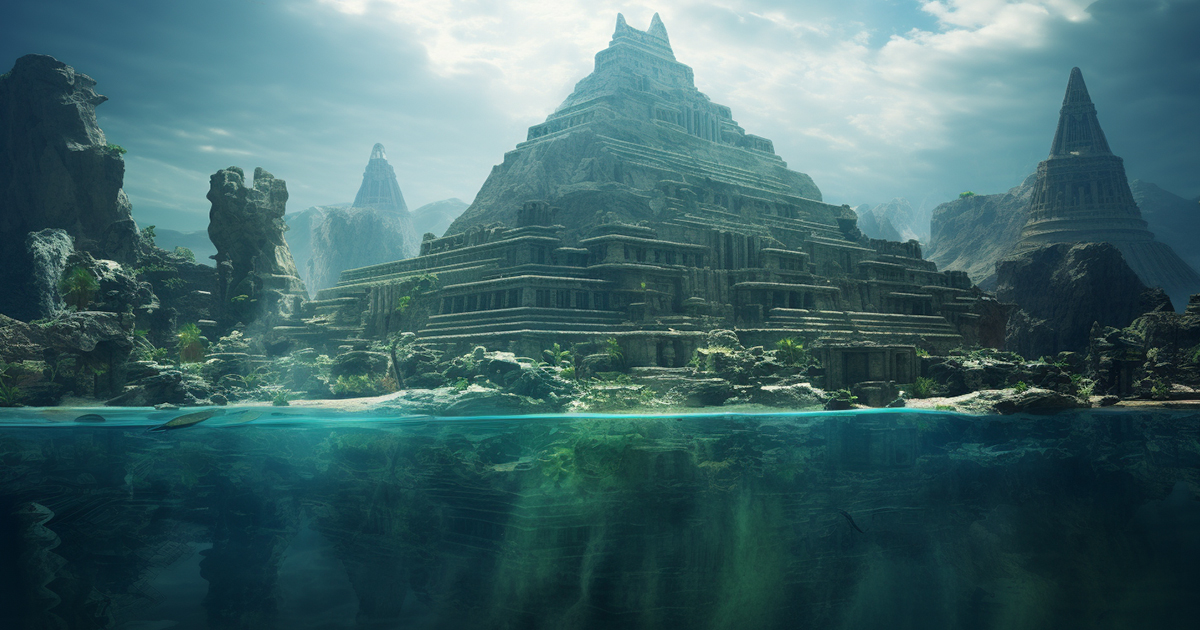Amid the myriad historical puzzles and captivating mysteries, few narratives intrigue the mind as deeply as that of Atlantis. Dating back over two thousand years, the ancient philosopher Plato first narrated the tale of this mythical island civilization in his dialogues, Timaeus and Critias. According to Plato’s accounts, Atlantis thrived as a society ruled by laws inscribed on a mysterious pillar located within the Temple of Poseidon at the core of the island.
This legendary pillar, constructed from a material known as orichalcum, bears a name that intriguingly translates to “of unknown origin.” The mere mention of orichalcum has spurred centuries of speculation and exploration. While the aforementioned television series often delves into the fantastical, an aspect of reality underpins this narrative that demands our consideration.
The Luminescent Metal of Atlantis
Plato’s narratives describe how the Temple of Poseidon emitted a dazzling red glow due to the presence of orichalcum. This mysterious metal, with its coppery sheen, has captivated historians, archaeologists, and treasure hunters for generations. The copper hue of orichalcum held an enchanting quality that enticed adventurers to Atlantis in pursuit of its enigmas.

Yet, the allure of orichalcum extends beyond its physical attributes; it is imbued with spiritual significance. Some believe there was a divine essence to this metal, something that resonated with the deities. This mystical connection brings a layer of intricacy to the narrative, encouraging us to delve into the spiritual aspects of ancient civilizations.
Contemporary Insights Below the Waters
Fast forward to 2015, off the shores of Sicily, where marine archaeologists made a discovery that reignited discussions surrounding orichalcum. A submerged shipwreck unveiled a collection of 39 metal ingots, confidently identified by experts as orichalcum. This revelation naturally raised the question: Could Plato’s rendition of Atlantis hold more truth than myth? Might this find serve as evidence of a lost ancient civilization?
What makes the revelation of orichalcum particularly intriguing is its composition. Comprising 80% copper and 20% zinc, what perplexes scholars is that zinc does not occur naturally but exists as sphalerite, a zinc-sulfur compound in nature. Extracting zinc requires processing it from this sulfide, a technological feat not thought to exist in ancient eras.
Plato’s writings, however, offer no insights into the sourcing or production of orichalcum, keeping its enigma intact. Yet, given its association with Poseidon and the divine, postulating that the gods themselves may have imparted this wisdom to the Atlanteans is not far-fetched.
Ancient Extraterrestrials and Otherworldly Guidance
Here, we delve into the realm of ancient astronaut theory, suggesting that our predecessors received knowledge from extraterrestrial entities. Proposing that these cosmic visitors taught early humans various sciences, including metallurgy.
The concept is enthralling: What if the Atlanteans were indeed mentored by beings from beyond our world, instructing them in the craft of working with metals? The notion posits that these extraterrestrial guides kickstarted our journey toward evolving into the advanced civilization we are today.
In the absence of definitive historical records, we are left to contemplate the tantalizing potentials. Could the orichalcum discovery serve as the elusive link in the Atlantis enigma? Did ancient aliens influence our species’ progression, leaving traces of their impact in the form of this mesmerizing metal?
Video:
While the television series weaves a complex web of intrigue and conspiracy, the tale of orichalcum and its association with Atlantis offers an engaging storyline on its own. It stands as a reminder that amidst our era of scientific progress, ancient enigmas await deciphering, one revelation at a time.
